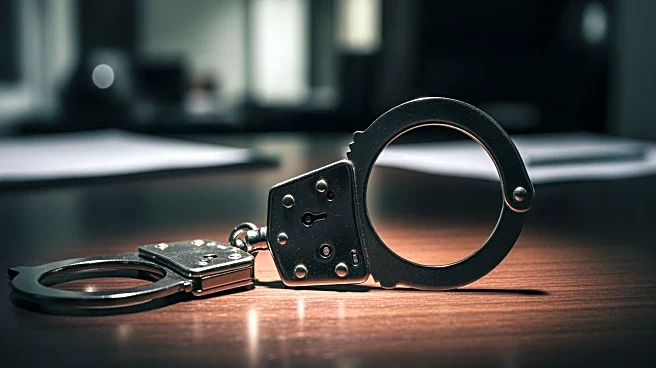What's Happening?
Brazil's federal police arrested former President Jair Bolsonaro on Saturday, suspecting he was plotting to escape and avoid starting a 27-year prison sentence for leading a coup attempt. The arrest was ordered
by Supreme Court Justice Alexandre de Moraes, who cited a violation of Bolsonaro's ankle monitor as evidence of a potential escape plan. Bolsonaro, who had been under house arrest, was deemed a flight risk. The arrest was a preventive measure to avoid a potential escape during a protest organized by Bolsonaro's son. Bolsonaro's lawyers have contested the claims, arguing that the ankle monitor was functioning properly.
Why It's Important?
Bolsonaro's arrest is a critical moment in Brazil's political landscape, as it highlights the judiciary's proactive measures to prevent any attempts to evade justice. The arrest could have significant implications for Brazil's political stability, potentially leading to increased tensions and protests from Bolsonaro's supporters. The situation also underscores the challenges faced by Brazil in maintaining democratic order and addressing allegations of political misconduct. Internationally, the arrest may affect Brazil's relations with countries that have expressed concern over Bolsonaro's actions and the broader implications for democracy in the region.
What's Next?
The Supreme Court is set to discuss and vote on Bolsonaro's preemptive arrest, which could determine the next steps in his legal proceedings. The decision may influence the political dynamics within Brazil, particularly among Bolsonaro's supporters and opponents. Additionally, the arrest may prompt reactions from international leaders and organizations monitoring Brazil's political stability. The situation could lead to further protests and demonstrations, as Bolsonaro's supporters rally against his conviction and imprisonment.
Beyond the Headlines
Bolsonaro's arrest raises questions about the broader implications for Brazil's democracy and the potential for political polarization. The judiciary's actions may be seen as a test of Brazil's democratic institutions and their ability to handle high-profile cases involving former leaders. The situation also highlights the challenges faced by countries in balancing legal accountability with political stability, as well as the role of public demonstrations in shaping political discourse.









